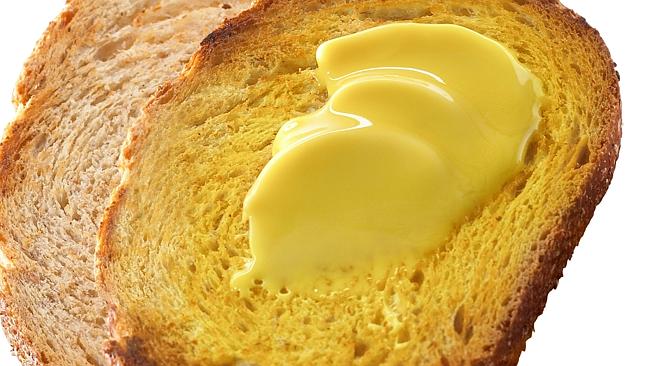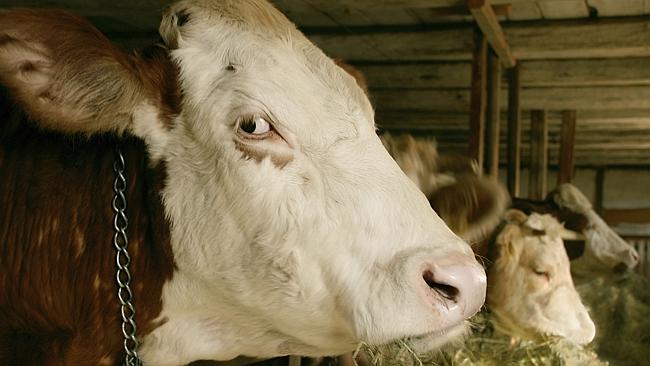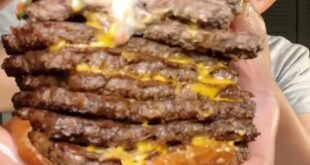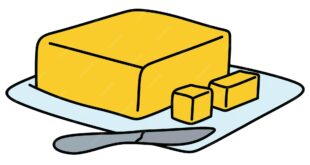News.com.au
October 25, 2013
 THEY put butter on their fried scones and sugar on their rolled oats and – shock horror – at 80 they’re still skinny!
THEY put butter on their fried scones and sugar on their rolled oats and – shock horror – at 80 they’re still skinny!
Our grandparents also used to make their own butter, cook with lard, drink full cream milk and put away plenty of potatoes.
Meanwhile we – who cut carbs, remove fat, cook less, eat more and spend most of our time sitting – are fatter than ever.
So how do our grandparents remain so healthy while living so heartily?
For starters, they ate less.
Grandfather-of-12 John Golding, who runs a family farm outside Grafton in northern New South Wales, says food was scarce when he was growing up.
“We ate less for sure because the food had to go around a big family. There were seven or nine kids in every family so you didn’t eat much at all. There were no ‘seconds’,” he said.
“We didn’t overeat and you’d restrict your bread intake because otherwise you’d run out.
“It was all healthy food. We always had a huge vegetable garden so we had cauliflowers growing in the winter time. We ate a lot of cabbage but only boiled cabbage.”
In Unhappy Meals, a piece for The New York Times Magazine, best-selling author Michael Pollan says we can all cut back.
 “The scientific case for eating a lot less than we currently do is compelling. ‘Calorie restriction’ has repeatedly been shown to slow ageing in animals, and many researchers (including Walter Willett, the Harvard epidemiologist) believe it offers the single strongest link between diet and cancer prevention,” he said.
“The scientific case for eating a lot less than we currently do is compelling. ‘Calorie restriction’ has repeatedly been shown to slow ageing in animals, and many researchers (including Walter Willett, the Harvard epidemiologist) believe it offers the single strongest link between diet and cancer prevention,” he said.
“Once one of the longest-lived people on earth, the Okinawans practised a principle they called ‘Hara Hachi Bu’: eat until you are 80 per cent full.”
John says they only ate actual foods.
“Boiled potatoes or fried eggs were what we’d have for breakfast when mum was rearing us on the farm,” he said.
“We did have a bit of steak and onion gravy – just a little bit of that now and again and I still love that for breakfast. Now I have toast with vegemite and avocado.
“I also eat a lot of bananas. I average five or six a day. When [my wife] Ollie’s dad was growing them I’d eat five or six before breakfast and could eat up to a dozen a day.
“Don’t forget I also have a watermelon every day, all year round.”
John says he and his wife Ollie, who does most of the cooking, rarely ate processed food.
“We didn’t have any packaged stuff at all,” he said. “When Dad bought this farm after the war, we’d milk two or three cows so you’d make your butter and custards.
“We were reared also on fried scones. We loved fried scones. Instead of baking the scones, we’d fry ’em. They were beautiful just with butter.
“The leftover corn beef would be minced up with a hand mincer and we’d make a potato pie. You’d put potatoes over the top and bake it like a cottage pie.
“With all the old meat you made curries. I also love honey carrots. There wasn’t one thing wasted.”
In Six Rules For Eating Wisely, a piece for TIME magazine, Pollan says we shouldn’t eat anything our great-great-great grandmother wouldn’t recognise as food.
“Imagine how baffled your ancestors would be in a modern supermarket … (most items) aren’t foods – quite – they’re food products,” he said.
“History suggests you might want to wait a few decades or so before adding such novelties to your diet, the substitution of margarine for butter being the classic case in point.
“My mother used to predict ‘they’ would eventually discover that butter was better for you. She was right: the trans-fatty margarine is killing us. Eat food, not food products.”
John, 79, eats everything but grew up on staples of rice, rolled oats and potatoes.
“When mum was rearing the five of us while dad was at the war she fed us on a lot of rice because that was cheap. I loved boiled rice with a bit of sugar on it, but now I don’t have sugar,” he said.
“We always had corned beef and spuds. They always boiled it and left it in the big pot until it got cold. It was pretty salty.
“I was reared on rolled oats. I love rolled oats made on full cream milk with a bit of salt and honey in it. You’d put a little bit of salt in it but that was just to cook things.”
 Daily Stormer The Most Censored Publication in History
Daily Stormer The Most Censored Publication in History

